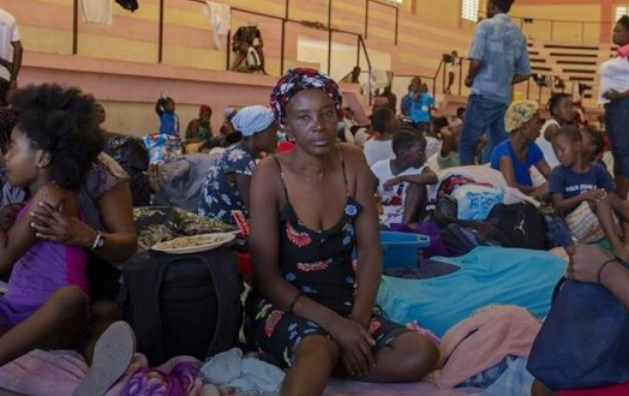Haiti: Guerrilla warfare and COVID-19 break out in Port-au-Prince
Starting in early June, firefights broke out among the armed neighborhood militias in Port-au-Prince, Haiti’s capital, with the cops sometimes participating when their precincts were attacked. When it became apparent that some of these militias had more fire power than the security details in wealthy neighborhoods, a general panic set in. (Haïti Liberté, June 2)
In that period, nine police stations were attacked, with weapons stolen and a Haitian police inspector killed. According to a National Network of the Defense of Human Rights recent report, over 30 cops have been killed in fighting since the beginning of the year. (Miami Herald, June 15)
There are shifting alliances between these groups. Some of them appear to have ties to the cops, since they have uniforms, body armor, communication devices and weapons used by the National Police of Haiti. Some of them engage in kidnapping and other forms of extortion; others are mainly intended for neighborhood defense.
A lot of the fighting took place in the southern area of Port-au-Prince, leading thousands of families to take refuge in the sports stadium in Carrefour, south of the capital city, at the invitation of Mayor Jude Édouard Pierre. According to UNICEF, nearly 8,500 women and children have had to flee their homes in the last two weeks, while about 600,000 people throughout the country have been impacted by the fighting.

Families take refuge in Carrefour’s sports center
There is another situation impacting the Haitian economy. Electricity of Haiti (EDH) is the national supplier of electric power with a major hydroelectric installation at Péligre in central Haiti near the Dominican Republic’s border. EDH has not been able to meet Haiti’s need for electricity.
Since June 15, some of EDH’s security guards have been occupying the plant and preventing needed repairs from being done. They are upset, since a corruption scam developed by these guards, which involves “ghost” employees, was uncovered. (Alter Presse, June 18)
COVID-19 overwhelms hospitals
As of June 10, public health officials claim Haiti has registered 16,662 infections and 358 deaths from COVID-19, in this country of 11.5 million people. These figures don’t reveal the full measure of the crisis. Almost every day hospital representatives in Port-au-Prince state on the radio that their facilities are full, and they have run out of oxygen and do not have room for more patients, even though most of them have financial means.
As of June 19, it doesn’t appear that the Haitian public health system has provided even one vaccination. The members of the elite who have cash, visas and foresight have flown out of the country to get their protective jab. But many others, even those among the elite who lack these resources, have caught COVID and have died, report obituaries.
Additionally, the fighting in Port-au-Prince has created obstacles to supplying hospitals with oxygen. A tank only contains enough oxygen for four hours of use. Tanks have to be refilled from a central facility.
“As a vital part of our commitment to share at least 80 million safe and effective COVID-19 vaccines, the Biden administration is actively engaging with Haitian government officials on how to get vaccines to Haiti as soon as possible,” a White House official told the Miami Herald June 15. But “no plans have been finalized.”
Since the U.S. government owns all the COVID-19 vaccinations produced in the U.S., Haiti is unlikely to get any vaccines without Washington agreeing to the transfer. Apparently, U.S. government officials arrogantly say they don’t have confidence that Haiti’s health care system is capable of distributing vaccines. But Washington could offer assistance to Haiti, the most oppressed country in the Western Hemisphere!
But will the U.S. provide help? The long history of U.S.-Haiti relations illustrate that the world’s richest country won’t lift a finger to aid the island nation’s health care system.
Given that Haiti has not even started to rebuild the main public hospital in Port-au-Prince which was destroyed in the 2010 earthquake, it’s highly unlikely that the country can improve its public health system enough to satisfy U.S. requirements. Notably, while the U.S. has taken Haiti’s resources for decades and superexploited its workforce, Washington has not provided the kind of help that Haiti needs.
Yet socialist Cuba has provided exemplary medical aid and health workers to assist Haiti! Former Haitian president and popular mass leader, Jean-Bertrand Aristide, will be treated for COVID in Cuba.
U.S. overt and covert control of Haiti
If push comes to shove, if U.S. imperialism’s interests are directly challenged or imperiled, military force is used. But given the current international climate, the U.S. prefers a proxy force. For example, after the U.S. occupied Haiti in March 2004, a U.N. force called MINUSTA replaced the U.S. soldiers three months later.
But the U.S. has other subtler tools of control. Fully one-third of Haiti’s gross domestic product comes from remittances sent from the U.S. by Haitians who are supporting their families or friends.
There are 150,000 Haitians living in the U.S. who benefit from “Temporary Protective Status” visas, which are dispensed to allow citizens from a distressed country to remain and work here. While the previous administration sought to end TPS for Haitians, the Biden administration extended these visas for 18 more months May 22.
If the U.S. seeks to put more subtle pressure on Haiti, Washington can either slow down or stop remittances or remove TPS visas behind the scenes. Either tactic is a painful blow aimed at the Haitian people.

